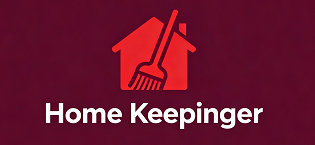Reducing energy consumption for heating and cooling is one of the most impactful steps you can take to lower your home’s carbon footprint and save money. Modern innovations, smart technologies, and sustainable practices are transforming how we manage indoor climates, making it easier and more affordable to stay comfortable without harming the environment.
This guide explores actionable strategies, advanced tools, and emerging trends to optimize your home’s energy efficiency in heating and cooling.
The Importance of Efficient Heating and Cooling
Heating and cooling typically account for more than half of a home’s energy use. Inefficient systems waste energy, increase utility bills, and emit unnecessary greenhouse gases. By adopting energy-efficient practices, you not only cut expenses but also contribute to global efforts to combat climate change.
Upgrade to High-Efficiency Systems
1. Invest in Modern HVAC Technology:
Switching to high-efficiency heating and cooling systems significantly reduces energy use. The latest models feature variable-speed motors, smart controls, and eco-friendly refrigerants that optimize performance and minimize waste.
2. Heat Pumps:
Heat pumps are among the most efficient heating and cooling options. They transfer heat rather than generate it, providing up to 300% efficiency under optimal conditions. Air-source heat pumps are suitable for moderate climates, while geothermal heat pumps use the Earth’s constant temperature for even greater efficiency, often surpassing 400%.
3. Solar-Powered HVAC Units:
Integrating solar panels with your HVAC system allows renewable energy to power your heating and cooling needs. Excess solar energy can be stored in batteries, providing sustainable climate control even when the sun isn’t shining.
4. Smart Thermostats:
Smart thermostats learn your schedule and adjust temperatures accordingly. They can be controlled remotely and programmed to lower or raise temperatures during occupancy and absence, preventing energy waste and enhancing comfort.
Insulation and Air Sealing
1. Proper Insulation:
Good insulation minimizes heat loss in winter and keeps the house cooler in summer. Properly insulated walls, attics, and floors are foundational to energy-efficient homes.
2. Sealing Air Leaks:
Air leaks around windows, doors, and ductwork waste energy and create drafts. Use weatherstripping, caulking, and sealants to plug gaps, maintaining a consistent indoor temperature without overworking your HVAC systems.
Ventilation and Air Quality
Balanced ventilation keeps indoor air fresh while preventing overheating or excessive cooling. Consider installing heat recovery ventilation (HRV) or energy recovery ventilation (ERV) systems. These devices exchange indoor and outdoor air efficiently, reducing the load on heating and cooling systems.
Optimize Heating and Cooling Usage
1. Thermostat Regulation:
Setting your thermostat a few degrees higher in summer and lower in winter can reduce energy consumption without sacrificing comfort. Aim for 78°F (25-26°C) in summer and 68-70°F (20-21°C) in winter.
2. Zone Control:
Use zoning systems or individual room controls to heat or cool only occupied spaces. This prevents wasting energy on unoccupied rooms.
3. Timing and Scheduling:
Program your thermostat to change temperatures during different times of day. For example, lower heating in the afternoon or at night when fewer people are awake.
4. Airflow Management:
Use ceiling fans, floor fans, or vent registers to circulate heated or cooled air more evenly. This helps maintain uniform temperatures and can reduce the load on your HVAC system.
Harness Renewable Energy
1. Solar Panels:
Installing solar panels to generate electricity reduces reliance on fossil fuels. Solar-powered attic fans, water heaters, and home heating systems further decrease your carbon footprint.
2. Geothermal Heating and Cooling:
Geothermal systems are one of the most sustainable solutions, using the Earth’s natural heat. Though initial costs are higher, rebates and energy savings over time make geothermal a smart long-term investment.
Maintain and Service Regularly
Preventative maintenance ensures your heating and cooling systems run at peak efficiency:
-
Change filters regularly (monthly or quarterly depending on the system).
-
Have annual inspections and tune-ups.
-
Clean ductwork to prevent clogging and improve airflow.
-
Upgrade or repair aging equipment to avoid energy waste.
Integrate Energy Storage and Monitoring
Smart energy storage solutions like batteries store excess solar energy for later use, reducing peak demand. Home energy monitors track real-time consumption, providing insights to modify habits effectively.
Emerging Trends and Future Technologies
1. AI-Driven Climate Control:
Artificial intelligence systems analyze weather patterns, household activity, and energy rates to optimize heating and cooling schedules automatically. This reduces waste and ensures maximum efficiency.
2. Hydrogen Boilers and Low-Carbon Technologies:
Hydrogen-ready boilers and other low-carbon technologies are emerging as replacements for fossil fuel systems, aligning with global goals of decarbonization.
3. Building Energy Automation:
Smart home ecosystems integrate heating, cooling, lighting, and appliances for comprehensive energy management, allowing homeowners to control and monitor their environment remotely.
Final Thoughts
Achieving energy-efficient heating and cooling is a combination of technology, home improvements, smart habits, and forward-thinking innovations. Simple changes like upgrading your thermostat, sealing gaps, and optimizing usage can lead to substantial savings and a smaller environmental footprint.
By investing in and maintaining modern, eco-friendly systems, and adopting smarter habits, you create a more comfortable, sustainable living space for years to come. Start today—your wallet and the planet will thank you.
- https://www.energystar.gov/products/most_efficient
- https://www.energy.gov/energysaver/home-heating-systems
- https://www.bestheating.com/info/biggest-home-heating-trends-for-2025/
- https://www.cleanenergyconnection.org/article/57-ways-improve-your-homes-energy-efficiency-2025
- https://smockhvac.com/blog/most-efficient-heating-system/
- https://teamenoch.com/blog/most-energy-efficient-hvac-systems-in-2025/
- https://sapphireheatsolutions.co.uk/2025/02/06/the-future-of-home-heating-in-the-uk/
- https://www.which.co.uk/reviews/home-heating-systems/article/home-heating-systems/the-best-heating-for-your-home-ajz7A3t9oXYE
- https://www.consumer-rights.org/energy-efficiency/a-guide-to-alternative-heating-systems-in-2025/



